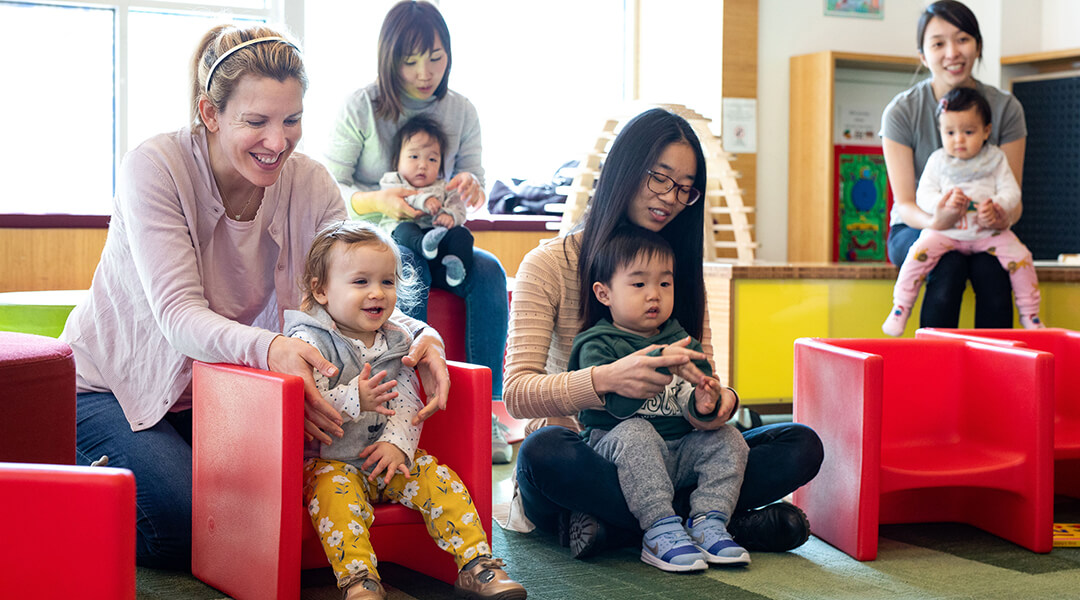
Talking as an Early Learning Activity
Tune in, Talk more, Take turns!
Talking with and to your child is one of the simplest, but also most important ways to support their early literacy. When babies are very little, it can sometimes feel hard to know what to say, but by simply narrating your day to them you are building a foundation for early literacy. As your child gets older, you can start asking them questions, even if they aren’t yet able to respond. And as they move through toddlerhood and into preschool you can encourage them to talk by asking questions and responding to what they say.
How:
For Babies
- Narrate what you are doing with your baby as you move throughout your day. Whether you are changing their diaper or cooking, explain out loud what you are doing.
- As your baby starts to babble, mimic their sounds back to them to encourage a back-and-forth exchange. As your child grows, try for five back-and-forth responses to make a “conversation”. We call this “Strive for Five”!
- Facing a mirror with your baby, make different sounds and words, so that your baby can watch as your mouth shapes the sound.
- Read books with them. Check out our Best Books for Babies lists for ideas on what books to read with your baby.
For Toddlers
- Continue to talk about your day, about things you see, what you will be doing next. Ask your toddler questions about these things. What color is that ball? Give them time to respond, and if they aren’t able to, you can reply to your own questions. That ball is red!
- Talk about the environment around you, explain what you see and point it out. This will help your child make connections between the word and object it defines. This can be especially important for children with low vision to help them experience the world around them.
- Repeat words and questions, this will help make their association with words and names permanent.
For Preschoolers
- Use open ended questions like “What do you think will happen next?” as you read books with them. It may take up to 12 seconds for children to process and respond to questions, so this may take patience!
- Encourage them to ask questions about new things as they encounter them in the world and answer their questions as fully as possible.
- Language and communication can happen in different ways. For children who need adaptive technology, you can still model your language with your child’s communication system.
Why
- Children learn about language by hearing it and creating it themselves.
- By talking with your child and assigning words to things, you are building your child’s background knowledge and vocabulary, an important early literacy skill that’s essential for learning to read in Kindergarten.
- Talking with and around your child helps demonstrate how to use language to communicate ideas.
By talking to and with your child, you are broadening their understanding of the world around them. As they get older and become more confident in verbally expressing themselves, you can encourage this exploration through inquisitive questions so that they can then explain how they see their world. What questions do you have that the Library can help with? Ask us in chat, by calling 412.622.3114 or by stopping into your neighborhood Library. Reading is one of five important early learning activities. Learn about the other four by revisiting the Early Learning Activities page!
